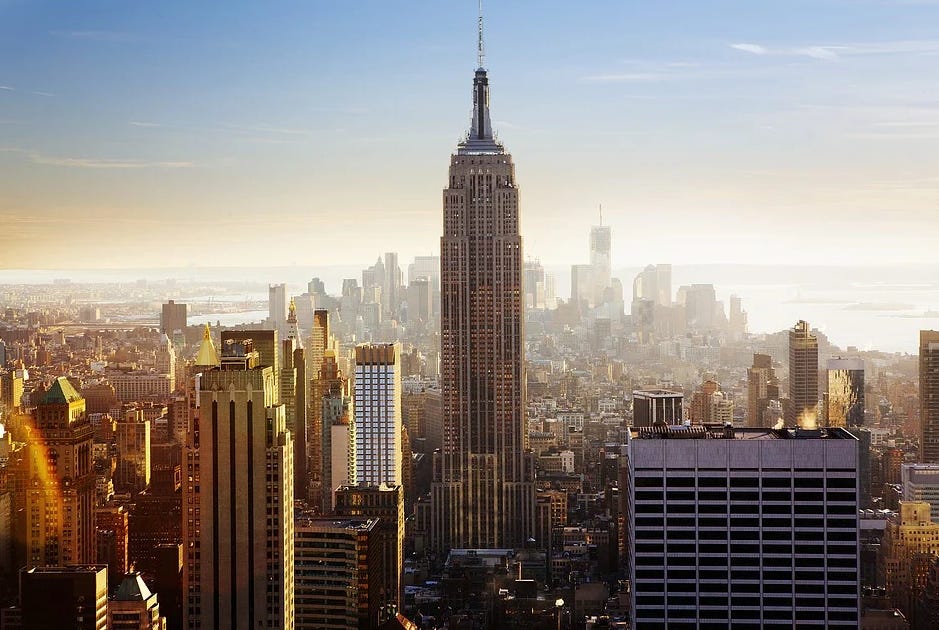New York Returns as an Anti-Monopoly Powerhouse
Right to repair. Antitrust. Pharmacy Benefits Manager. The Empire State is back.
Welcome to BIG, a newsletter on the politics of monopoly power. If you’d like to sign up to receive issues over email, you can do so here.
One of the great anti-monopoly historians working today is Columbia University’s Richard John. John is a leading scholar in the sub-branch of the field known as ‘the history of capitalism,’ which is the place that fellow practitioners are excavating the anti-monopoly tradition from its historical dustbin.
John is recasting the entire history of the 19th century, slowing helping scholars and policymakers understand that laissez-faire, and even ‘the Gilded Age,’ are misnomers. The political economy of the 19th century is best known as the era of anti-monopolism in American history. Americans didn’t want to be left alone by their state, as the right argues. And it wasn’t a rag-tag group of Western or southern farmers known as Populists who alone fought corporate power, and lost, as the left argues.
The center of anti-monopolism, he argues, was in New York City, the cross-roads of American finance, manufacturing, and trade. It was New York merchants who fought Jay Gould and the Western Union monopoly in the late 19th century, and New York political leaders who built out the anti-monopoly strategy of allowing unlimited corporate chartering in the early 1800s. Henry George, the great opponent of the land monopoly, ran for Mayor of New York City, and both Teddy Roosevelt and Franklin Delano Roosevelt were New Yorkers. So was Robert Jackson, who launched perhaps the most important antitrust suit in American history, that against Alcoa in 1937.
And now, we’re back to the future. Last week, the New York state Senate passed the most important antitrust bill in the country in a generation. The very same week, the state Senate also passed a bill to roll back right to repair restrictions, which are contractual restrictions by dominant firms blocking the ability of customers to repair everything from iPhones to wheelchairs to medical equipment to tractors to military weapons systems. The assembly passed a bill to regulate pharmacy benefits managers, the shadowy middlemen in the pharma pricing supply chain who help drive up prices and screw independent pharmacies at the same time.
That’s three significant bills in totally different areas! The antitrust bill and the right to repair bills are not guaranteed to get through the Assembly but the PBM bill is likely to become law. It’s not just, however, these moves by the state legislature. New York is the first place that said no to Amazon, during the HQ2 fight. Jerry Nadler, the Chair of the Judiciary, is a New Yorker, and he green-lit the antitrust investigation that delved into big tech last year. He sits in the same committee chair of another great New Yorker, Emanuel Celler, who ran a series of monopoly investigations in the 1950s. Celler’s investigation was based on the actions of another New Yorker, Ferdinand Pecora, who ran the Pecora investigations to trace the roots of the financial crash of 1929, or how big banks and utility magnates helped cause the Great Depression.
What’s happening today has powerful echoes of the past, and nowhere are those echoes louder than in New York. The Empire State is back, baby.



Something in the news that doesn't inspire a sense of dread. Thank you for posting this.
This is great to hear... I do think the NY politicians seem to be leading all of these fights. Including AOC and Amazon... Really good insight... ORGANIZE